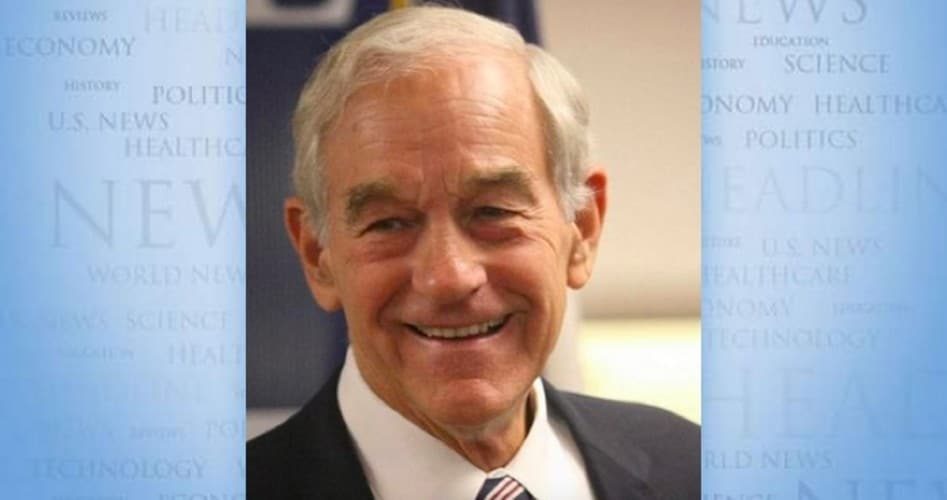
Last week the national debt reached 35 trillion dollars, a mere seven months after the debt reached 34 trillion dollars. To put this in perspective, the national debt first reached one trillion dollars in October of 1981, almost 200 years after the Constitution’s ratification!
The fact that the government was adding one trillion dollars in debt in little over half a year was not deemed worthy of comment by President Biden, Vice President Harris, and most other US politicians. This is not surprising since the national debt has not been a central issue in DC since the days of the Tea Party movement. The Tea Party’s efforts to focus attention on the debt resulted in a bipartisan deal that made minuscule spending cuts. In fact, most of the cuts were not real cuts. They were just reductions in the “projected rate of spending increase,” meaning the spending still increased but just by not as much as originally planned.
This was not the first time that apparent spending limits consisted of smoke and mirrors. For example, the budget “surpluses” of the 1990s were due to the government’s practice of counting the social security trust fund as both a liability and an asset, not because of bipartisan budget deals.
The Donald Trump-inspired rise of “populist nationalist conservatism” that does not emphasize the national debt means Republicans have less incentive to even talk about the debt — aside from making justifiable, though hypocritical, attacks on President Biden and congressional Democrats’ excessive spending. Similarly, the rise of a Bernie Sanders-influenced “new left” has led even centrist Democrats to stop giving lip service to the cause of deficit reduction.
Many Democrats, including those who have embraced Modern Monetary Theory, agree with former Vice President Dick Cheney that “deficits don’t matter.” Modern Monetary Theory asserts that as long as the central bank can monetize federal debt and keep interest rates low the government can endlessly increase the amount of debt. This is not really modern, as the Federal Reserve has long been acting as the “great enabler” of the federal debt.
Those who pretend deficits don’t matter ignore the fact that interest on the national debt will soon be the largest item in the federal budget, consuming as much as 40 percent of federal revenue. This is unsustainable. The devaluation of the dollar resulting from the Federal Reserve’s efforts to stimulate the economy and monetize federal debt, combined with increasing resistance to US hyper-interventionist foreign policy, will lead to a rejection of the dollar’s world reserve currency status. When that occurs, there will be a major economic crisis unlike anything this country has seen since the Great Depression.
This crisis could lead to increased support for authoritarianism in both the left and the right. The result will be even greater restrictions on economic and civil liberties and even more belligerent foreign policy, scapegoating those who reject the dollar’s reserve currency status for the country’s economic problems.
However, the economic crisis also can be followed by a society with minimal government and more liberty. The liberty movement is still growing. Those who understand the philosophy of liberty and sound economics must continue to spread the truth about the dangers of fiat money and the growth of government power and government debt. They must also communicate the benefits of the free market, personal liberty, sound money, and peace.
Ron Paul is a former U.S. congressman from Texas. This article originally appeared at the Ron Paul Institute for Peace and Prosperity and is reprinted here with permission.





